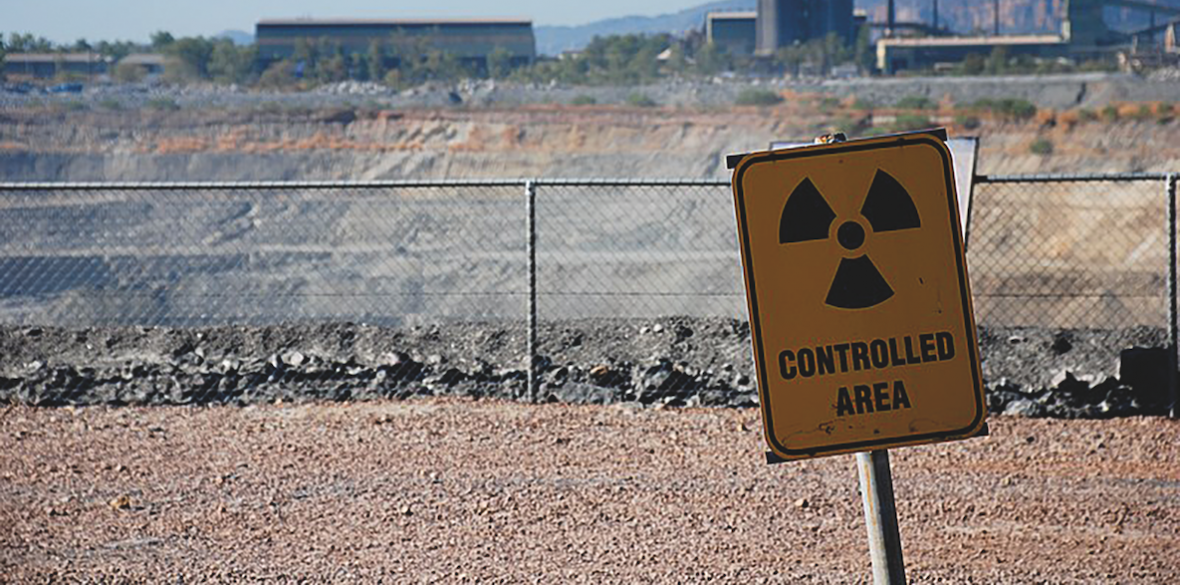This is the last article you can read this month
You can read more article this month
You can read more articles this month
Sorry your limit is up for this month
Reset on:
Please help support the Morning Star by subscribing here
THERE is an abundance of reasons why it is folly to continue with building nuclear reactors.
There is the cost which is huge compared with investing in more genuine sustainable energy. There is the problem with radioactive waste, for which there is no solution yet for the legacy waste, let alone producing more.
There is the potential for attack: if wind turbines were attacked it would make for a difficult situation, but if a nuclear reactor were to be sabotaged it would be the equivalent of a nuclear bomb going off.
And the latter also goes for a breakdown at a plant. We need to remember the effects of Chernobyl and Fukushima which continue to this day.
Looking at Britain, many of the nuclear reactors are sited on the coast and the proposed Sizewell C on the east coast. With global warming, the sea level will rise and there is the chance of tidal surges with a threat to these reactors.
But there is another factor which is never mentioned by the proponents of nuclear energy — the fuel used is uranium, and it will be in the future.
This is mined mainly on the lands of indigenous people across the world. Countries and regions where uranium is mined include the land of the First Nations in Canada, the lands of the Navajo (Dine) in the southern United States, the land of the indigenous people of Australia, Namibia, the Democratic Republic of the Congo (the DRC), Niger, Greenland and Kazakhstan.
The miners and their families have suffered over the years from mining this dangerous radioactive mineral in poor conditions, with illness and early death.
In a recent statement printed in the Morning Star, the people of Niger (note this is not Nigeria but Niger, a former French colony) said that they were fed up, “because for over 50 years, France has relied on uranium from Niger for its energy security. We know that French farmers were generously compensated when their land was requisitioned in the 1970s to build nuclear reactors. But for our people the mines have only meant dangerous working conditions, ill health, and historically poor remuneration.”
From the DRC, a former Belgian colony, Joe-Yves Salankang Sa Ngol, of the Congolese Civil society in South Africa, said: “Before the uranium would destroy life in Japan [referring to the nuclear bombs the US dropped on Hiroshima and Nagasaki] it first started by destroying life in Shinkolobwe.”
The Shinkolobwe mine in the DRC was owned by a Belgian company which sold its first 4,200 metric tons of uranium to the US for the Manhattan Project.
Here is what Joshua Frank said in his book, Atomic Days, about the conditions. “Paid very little, at times less than the minimum wage, these miners would enter deep uranium shafts and chip away at the walls, often 1,500 feet below the earth’s crust.
“They filled their wheelbarrows with the uranium ore, all the while choking on soot and dust particles. It was dark. There was no ventilation. It was tremendously difficult, perilous work. They ate in the mines and drank water that dripped from the walls. The water contained high quantities of radon — a radioactive gas emanating from the ore.”
He continued: “Radon exposure causes lung diseases, the dangers of which were well known to scientists and the medical community prior to World War II. But the Dine [the Navajo] were deemed expendable.”
And Frank also said: “In addition to the impact on Dine health, their land too was ravaged. Upwards of three billion metric tons of waste was created as a result of extraction on Dine lands, a dizzying amount to poison native communities throughout the south-west [of the US] to this day.”
These, and many more stories of the same situation across the globe, show how supporters of nuclear power have turned a blind eye to the suffering of the miners and their families, not to mention the devastation done to their land.
However, in different regions the local people are fighting back. For example, in Greenland, in 2021, a ban on uranium came into force after the Inuit government’s successful election campaign.
There had been a ban earlier, but this was then overturned in 2013. But with the indigenous Inuit now in control of the government, the ban will probably hold.
If we turn to Britain, there is no significant amount of uranium to be found and there is no commercial mining. So, Britain must import uranium from Canada and Namibia.
No thought seems to have been given by the two main political parties which support new nuclear build, or the trade unions, or the media proponents of nuclear power, to the shameful history of uranium mining which will continue if new reactors are built. It has been called nuclear colonialism.
Several recent reports show that there is no need for nuclear; 100 per cent genuine renewables can provide Britain with enough energy.
Supporters of nuclear power should think hard about their positions. Surely, for example, workers in Britain would want to act in solidarity with their mining comrades across the world?












